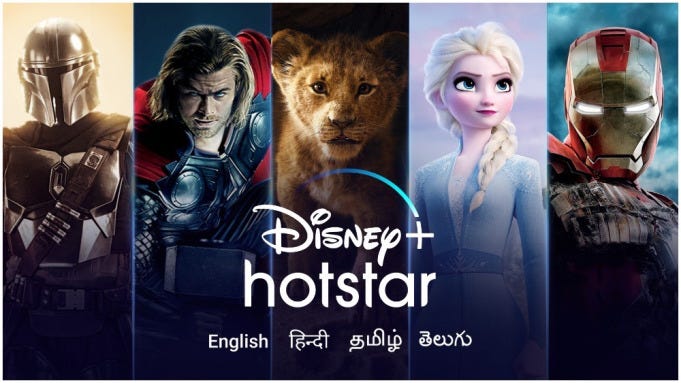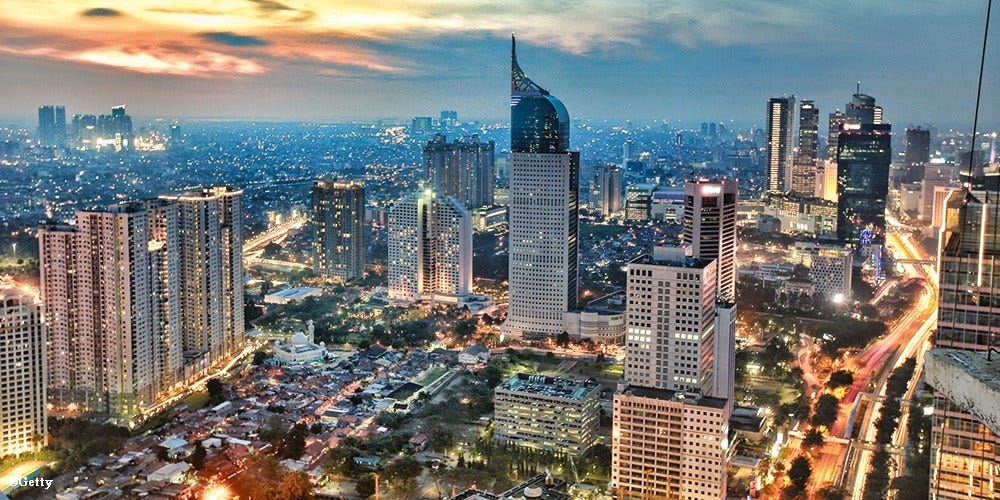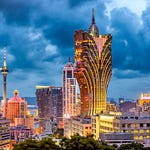Welcome to East West Hurricane! 🌪
We update you on the most essential news from Asia in tech, media, and business—the things you need to know that you probably haven’t heard in Western media.
Please share this newsletter with a friend! ⚡️
Chinese Vaccines as Soft Power?
In my recent interview with Peony Li, we talked about the idea of Chinese soft power. As Covid vaccines (hopefully) start to move the world out of the current crisis, China can play a huge role in this movement. There are several vaccines around the world, and a handful are being developed in China. While big name vaccines from Pfizer, AstraZeneca and Moderna are being scooped up by the major Western countries, emerging markets are turning to vaccines produced in China. Countries across South East Asia, Africa, and the Middle East are all in the middle of negotiations to receive the Chinese Covid vaccine.
With unfavourable views of China at all-time highs in several countries, China needs to do whatever it can to improve its international reputation. If these vaccines don’t work as well as expected, there will be backlash. If the vaccines work well, this helps build a closer relationship between China and emerging markets. It’s a big gamble—with huge upside and huge downside. So far, initial results from Brazil and Turkey have been positive.
Sequoia and KKR lead $2B round for Bytedance, valuing it at $180BN
Sequoia Capital and KKR are two of the biggest US investors leading the latest round of funding for Bytedance, the parent company of TikTok. This round values Bytedance at $180 Billion, and TikTok is expected to go public sometime next year. It’s a good reminder that there are many Western stakeholders with a lot of money invested in Bytedance who have a huge incentive to see it succeed.
One of the realities of globalisation is the globalisation of capital. If the world’s biggest companies have a mixture of investors from literally all parts of East and West, the idea of national interests defined by corporations becomes trickier to understand. So whenever the next ‘Chinese app’ is under threat of being banned in the West, there are plenty of Western investors who don’t want to see this happen.
Disney Hotstar, The International Growth Engine
Disney+ has been one of the most impressive media stories of 2020. The Disney Plus streaming service launched in November 2019 and around a year later, the platform now has 86 Million subscribers. That’s incredible growth.
For reference, when Disney first launched they forecasted that they would reach 60 to 90 million subscribers by 2024. Now they have revised their forecast to reach 260 million subscribers by the end of 2024. What drives this growth?
One major factor is international markets. Disney Hotstar is part of Disney Plus streaming platform that focuses on Asian countries like India and Indonesia. Right now, Hotstar accounts for 30% of Disney Plus’s total subscriber base and has more room for subscriber growth than in Western markets. Rebecca Campbell, Disney Plus’s head of streaming recently said, “We are uniquely positioned for India because of the rapidly growing middle class and their purchasing power.”
Indian Ridesharing With Global Ambitions
Ola is India’s largest ride-hailing service, valued at several billion dollars and funded by investors that include SoftBank. Ola’s business was hit hard by the pandemic but they have recently announced the creation of a new factory in Tamil Nadu, which aims to be the world’s largest scooter manufacturing facility.
At the beginning of this year, Ola launched its taxi-hailing service in the UK after previously launching in Australia and New Zealand. Ola has expanded into Europe and acquired Dutch electric scooter company Etergo several months ago. Now the UK is their big hope. Let’s see if Ola ‘the Uber of India’ can break into Europe. If they can, then we’ll have yet another example of tech innovation flowing from East to West.
The major US Fintech company Stripe plans to expand their Asian presence and has had a 40% increase in staff across the region this year. Digital Payments/Fintech is already huge in Asia - with plenty of challenges, lots of complexity, and an abundance of local competitors.
One strategy that might be best for Stripe to follow is acquiring or investing in fintech companies rather than directly trying to compete with them. Earlier this year, Stripe led the funding round of Filipino fintech startup PayMongo. Stripe could follow a model similar to Chinese tech giant Tencent. Over the last two decades, a large part of Tencent’s growth has come from investing in companies and acquiring companies rather than creating their own competitors. That might be the best option for Stripe in a super competitive Asian fintech market.
Indonesia’s New Sovereign Wealth Fund
Indonesia is launching a new sovereign wealth fund worth around $15 Billion to help finance infrastructure projects across the country. Japan’s Bank for International Cooperation plans to invest $4 Billion and the US Development Finance Corporation signed a letter of intent pledging $2 Billion. The Indonesian government is hoping to attract foreign investors to provide much needed capital, especially as they cope with Covid.
One of the biggest and most interesting infrastructure projects is the creation of a brand new Indonesian capital city. The Indonesian government plans to move the capital city from Jakarta to East Kalimantan by 2024. This would reduce the burden on an overloaded Jakarta and place the capital in a more strategic location closer to the center of the country. I lived in Jakarta back in 2006 and remember how the city infrastructure struggled to keep up with growth.
This reminds me of when I visited Pakistan’s capital city of Islamabad. Islamabad was created in the 1960s as a new capital to replace Karachi, and you’ll notice that Islamabad feels a lot cleaner and more modern than Karachi. The Brazilian government did something similar by creating a new capital city of Brasilia in 1960.
If you enjoyed this, please share East West Hurricane with a friend! 😁
You can reach out to me and find more of my work here on Linktree…!


















Share this post